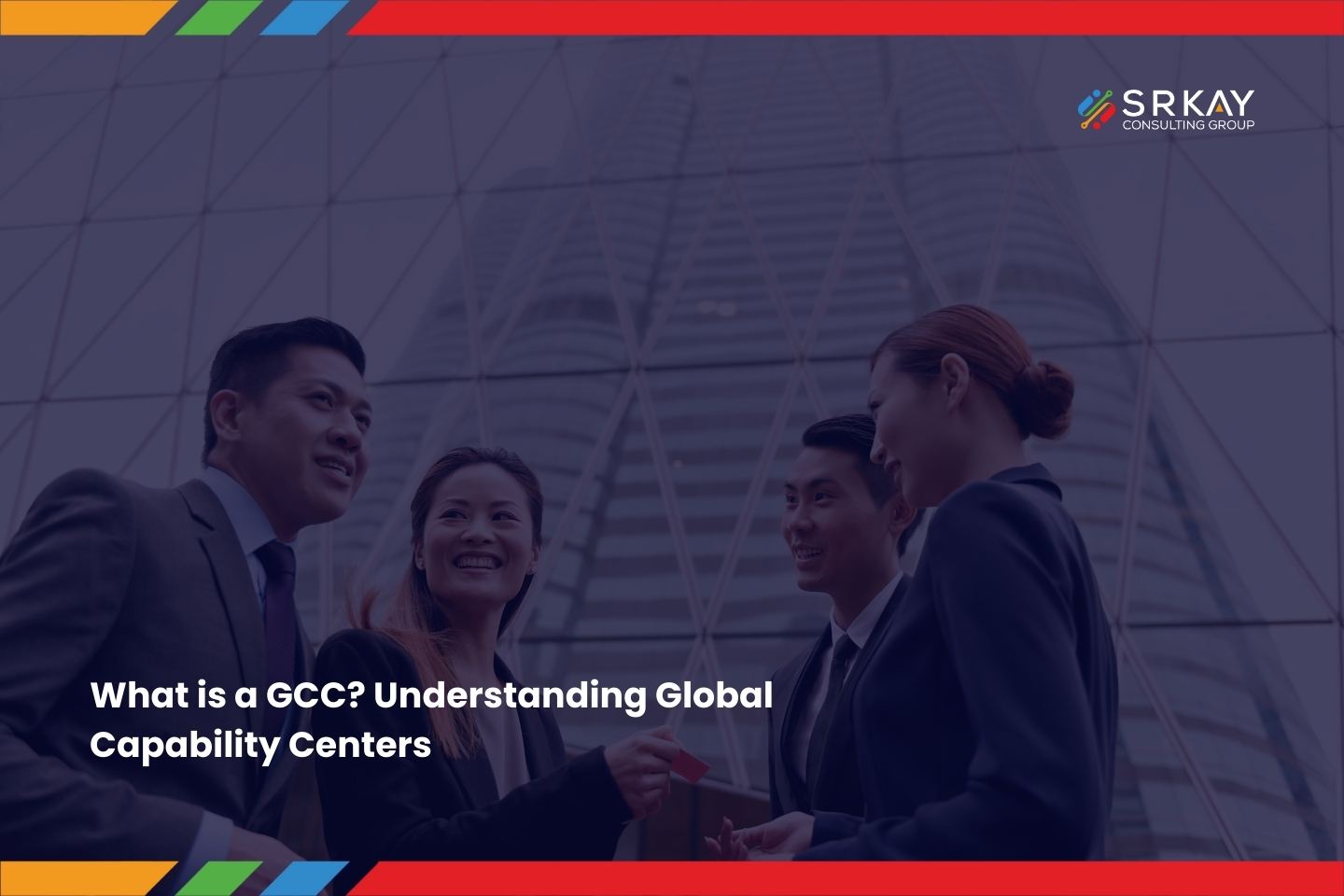

Close

In a rapidly globalizing economy, Global Capability Centers (GCCs) are no longer back-office cost-saving units; they are innovation hubs reshaping enterprise strategies. The new era, referred to as “GCC 8.0”, represents a phase where multifunctional excellence, embedded strategic influence, and deep cultural fluency converge. To succeed in this environment, organizations must prioritize GCC culture management as a core capability, not a secondary initiative.
This evolution demands more than operational efficiency. It calls for a holistic redesign of GCCs as cultural ecosystems that integrate sustainability, diversity, local context, and global best practices seamlessly into strategy and operations.
GCCs operate in complex cultural ecosystems, especially in markets like India, the UAE, and Southeast Asia. Communication norms, authority perceptions, and collaboration styles vary widely across these regions. Applying a single, rigid model globally often leads to operational friction, employee disengagement, and higher attrition rates.
Survey data highlights that 60% of global leaders report challenges in offshore integration, 30% cite work-style differences, and 29% hierarchy mismatches. Recognizing and adapting to these nuances is essential to mastering GCC culture management.
Successful organizations developing a GCC setup in India have incorporated localized onboarding modules, region-specific leadership playbooks, and decentralized decision-making charters, enhancing employee experience and reducing friction.

Rather than replicating headquarters’ culture across all sites, effective GCCs embrace hybrid culture models, balancing global consistency with local relevance. One leading global capability center in India enhanced engagement by integrating regional festivals, multilingual communications, and flexible collaboration norms, while still aligning KPIs with HQ expectations.
This fusion approach supports regional pride while maintaining global strategy cohesion. Cultural fluency becomes a source of trust, not tension, across distributed teams.
Embedding GCC culture management principles early during expansion phases is crucial for fostering an environment where operational excellence and cultural resonance coexist.
True diversity today extends beyond nationality or gender, it includes neurodiversity, generational differences, and intersectionality. Leading GCCs are implementing sensory-inclusive workplaces with quiet zones and adapted lighting and partnering with neurodiverse hiring platforms like EnAble India and Specialisterne.
GCCs serious about cultural transformation are weaving DE&I metrics into leadership KPIs, making inclusion a measured outcome, not just a stated intent, a critical dimension of GCC culture management.

Unlike traditional CSR initiatives, sustainability is becoming intrinsic to workplace culture. Forward-looking GCCs integrate green practices, such as achieving LEED certifications, adopting zero-waste policies, and hosting employee-led eco-initiatives, into daily operations.
In addition, a manufacturing GCC integrated solar panel performance tracking into employee dashboards, linking personal energy-saving behaviors to enterprise ESG goals. These practices reinforce a shared sense of purpose, align with regional environmental mandates, and support talent attraction.
Incorporating sustainability early into GCC culture management ensures it becomes a part of organizational DNA, not a remark.
Cultural design is being revolutionized by digital technologies. Tools like AI-powered sentiment analysis, AR-based onboarding journeys, and VR simulations for cross-cultural conflict resolution are personalizing employee experiences at scale.
A top tech GCC leveraged AI-driven microlearning modules tailored to regional behavioral norms, resulting in faster onboarding and smoother team collaboration. Real-time sentiment dashboards further empowered leaders to spot and address cultural misalignments before they escalated.
When technology and GCC culture management intersect thoughtfully, culture shifts from being passive to actively nurtured and dynamically adjusted.
With emerging hubs like Coimbatore, Kochi, and Bhubaneswar gaining momentum, intranational cultural differences are more relevant than ever. Each city brings unique dynamics, linguistic diversity, expectations around hierarchy, and decision-making processes.
Global organizations expanding their GCC in India footprint must move beyond metro-centric models. Successful GCCs customize leadership styles, communication rhythms, and even workweek structures based on local expectations, increasing agility and regional loyalty.
Localized governance models ensure that expansion into new hubs strengthens, rather than dilutes, cultural coherence.
GCCs that partner with local universities, nonprofits, and civic bodies anchor themselves in regional realities. A healthcare GCC collaborating with Bengaluru’s top medical colleges to create clinical AI internships is one shining example. This approach built a strong talent pipeline while reinforcing the center’s local relevance.
Strategic partnerships humanize the GCC brand, foster goodwill, and align workforce development with business needs, a vital aspect of scalable GCC culture management.
Employee expectations increasingly mirror consumer behavior: personalization, authenticity, and social impact matter. GCCs that embrace internal storytelling campaigns, celebration of regional traditions, and recognition platforms that honor diverse contributions report deeper engagement and higher innovation rates.
Building an emotionally resonant culture ensures that creativity thrives, not despite diversity, but because of it.
The new age of GCC 8.0 demands intentional, not incidental, cultural architecture. GCC culture management is the hidden infrastructure that powers strategy execution, talent retention, and innovation.
Organizations investing early in sustainable, inclusive, tech-enabled, and locally resonant culture frameworks will redefine success across borders. Leaders must view culture as a strategic asset, one that binds people, performance, and purpose together seamlessly.
For those envisioning resilient, future-ready global hubs, the path forward is clear: embed culture at the heart of your growth blueprint.
We co-create with our customers at the center, combining deep domain expertise with innovative technology and talent solutions to accelerate growth. Our passion for excellence drives us to transform businesses, unlocking new opportunities and delivering lasting impact.
Subscribe to our newsletter to get our newest articles instantly!
Smart Leaders Are Rethinking Outsourcing. Are You? As global businesses face margin pressure and tech talent gaps, outsourcing is evolving from a cost play to a growth strategy. We're inviting senior leaders to share their perspectives in a short survey that explores how companies are scaling faster and operating leaner through smarter outsourcing. Take the short survey now and lead the next wave of global delivery excellence.
